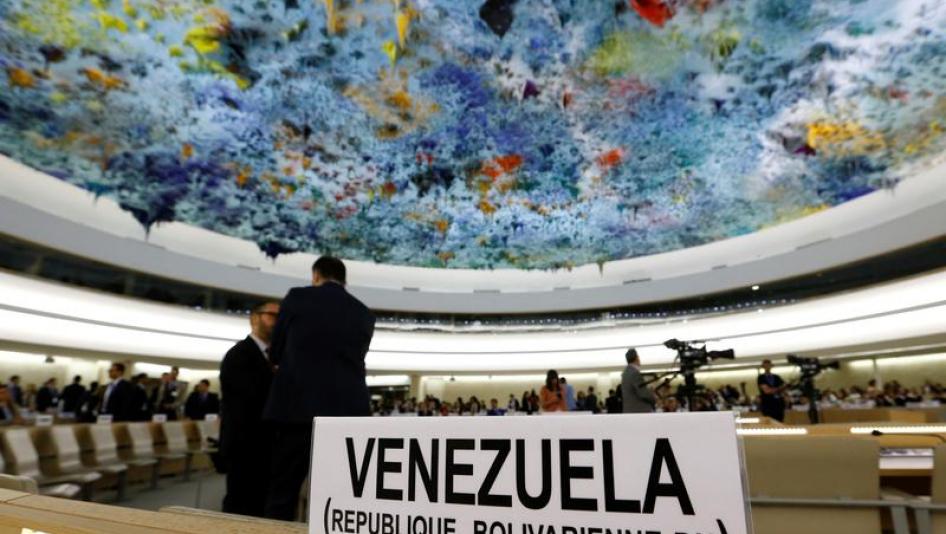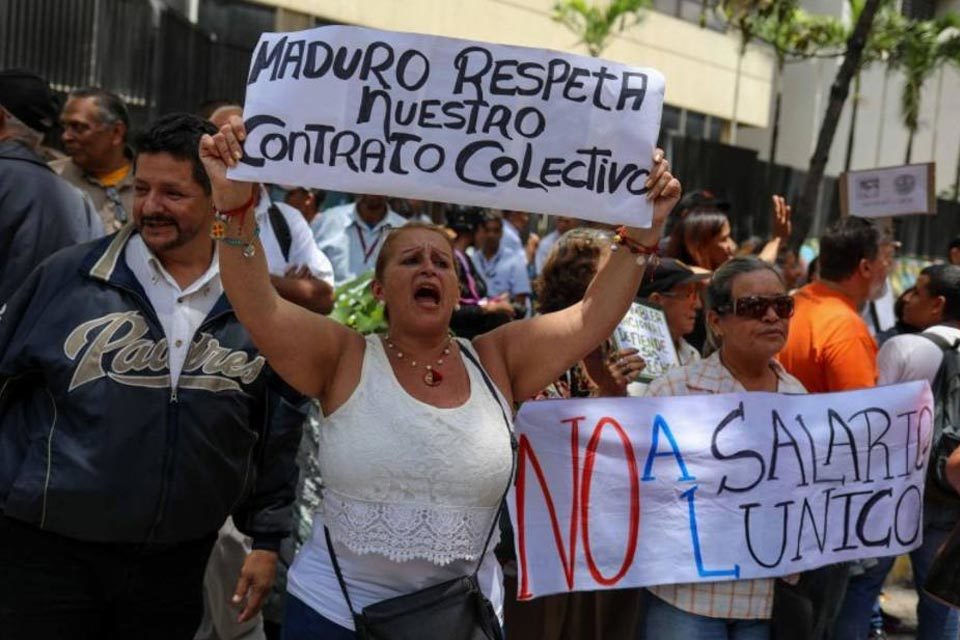In Venezuela, the ruling party’s desire for control knows no limits. After seizing power over State institutions and the Bolivarian National Armed Forces (FANB) and silencing the vast majority of the independent media, the authorities have launched a fight against one of the few spaces that remain out of their control, organized civil society. To this end, they have built in recent years a regulatory wall to suffocate civil organizations.
The situation was denounced in a report by Venezuelan NGO Acceso a la Justicia under the title Regulatory siege on freedom of association in Venezuela, which states that the instruments approved or reformed in the last two decades have established obligations “incompatible with international standards” in terms of human rights.
The report makes a review the content of nine laws (Organic Law of the People’s Power; the Law on Communal Councils; the Organic Law of Communes; the Organic Law of the Communal Economic System; the Organic Law on Social Comptrollership; the Law in Defense of Sovereignty and Self-Determination; the Law on Political Parties, Public Meetings and Demonstrations; the Organized Crime and Terrorism Act; the Law of Registration and Enlistment for the Integral Defense of the Nation; and the amendment of the Income Tax Act) and four regulations of sublegal rank (the Regulations on the Management and Control of Risks Related to Money Laundering, Financing of Terrorism, and Financing of the Proliferation of Weapons of Mass Destruction, applicable to the Institutions of the Banking Sector; Circular SIB-DSB-CJ-OD-06524 dated November 20, 2020; the Special rules for the recognition and operation of non-governmental associative organizations not domiciled in Venezuela, and the Regulations for the unified registration of regulated entities with the National Office for Combating Organized Crime and Financing of Terrorism).
“National legislation contains prohibitions on funding for civil and political rights organizations, (…) incompatible with international standards because it “establishes tax, registration, and reporting obligations that unnecessarily burden organizations and hinder their activities”.
Several of the instruments compel civil groups to enlist in new registers before different public bodies, provide information to the authorities about their activities and remain subject to possible inspections or audits. Also, any breach opens the doors to fines and even the possibility of being denied authorization to continue operating, even though the procedures that guarantee due process are not defined.
Likewise, several of the regulations prohibit or proscribe international funding, essential for the operation of human rights and humanitarian or charitable organizations, although the standards of the United Nations and other international organizations recognize it as a legitimate right.
The beginning of a story
The report notes that the 1999 Constitution establishes some limitations on the right to association contrary to the international treaties signed by Venezuela.
Even though article 52 of the Constitution recognizes that “everyone has the right to associate for lawful purposes under the law”, article 256 prohibits judges from forming associations, in flagrant violation of the international standard established both in the Covenant on Civil and Political Rights and the Inter-American Convention on Human Rights.
The report also makes clear that the current Constitution establishes a setback from the 1961 text with the suppression of this article and the failure to mention the specific protection according to which “the State shall protect associations, corporations, societies, and communities having as an object the fulfillment of the purposes of the human person and social coexistence”.
The most serious thing is that article 293.6 gives the National Electoral Council (CNE) the power to organize the elections of political parties, unions, professional associations and other civil organizations, which has given the State the possibility of meddling in many of these institutions, thus threatening their autonomy and independence. This had already been denounced by Acceso a la Justicia in its report on the seizing of power in Venezuela’s bar associations between 2000 and 2020.
The first big blow
The report also denounces that the so-called Laws on People’s Power, especially those issued after 2010, represent another blow to the right to association as they created legal figures such as communal councils, whose autonomy is contested due to the process of election of their members and because their purpose is to help “in the construction of the new model of a socialist society of equality, equity and social justice”.
Also, these laws close the doors to the constitution of civil associations of neighbors with all the liberties derived from the right to freedom of association, given that the authorities do not recognize them as the legitimate representation of a community if they were not constituted under the construct of popular power, in other words, as a communal council.
How does this affect Venezuelans?
The right to freedom of association in Venezuela is not fully guaranteed by the national Constitution, while the regulatory framework that Chavismo has dictated in recent years has further restricted the possibility for citizens to organize themselves to take part in public affairs.
This legal construct added to the judicial intervention of unions, bar associations and universities and the harassment campaigns against activists and organizations, explains why the former United Nations High Commissioner for Human Rights, Michelle Bachelet, expressed concern about what she called the “closure of civic space” in the country.
Read the report on the Regulatory Siege on Freedom of Association in Venezuela HERE.
Translated by Jose Rafael Medina




